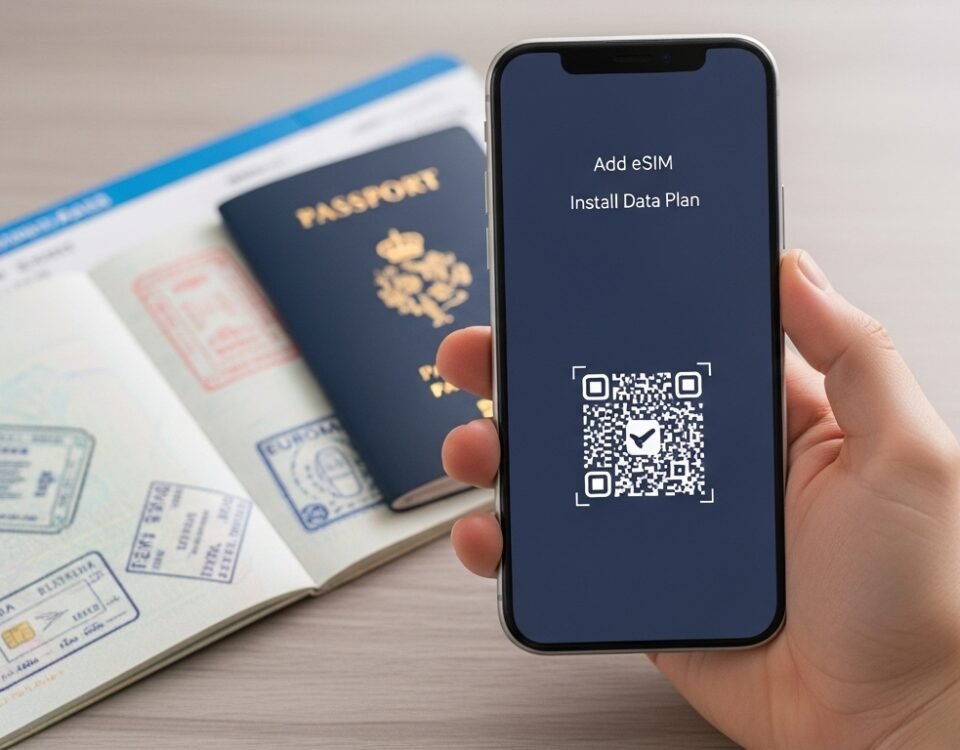Digital Nomad Visas & Residency Opportunities in Europe (2025 Guide)
Where remote workers can legally live, work, and thrive across Europe—income requirements, lengths of stay, renewals, and practical tips.
Europe is a dream for digital nomads: world-class cities, fast internet, rich culture, and short-hop travel between wildly different places. But the difference between a great year abroad and a stressful one often comes down to paperwork. This ExplorerNest guide breaks down which countries welcome remote workers in 2025, what they require, and how to choose the base that fits your budget and lifestyle.
Good to know: Most digital nomad visas let you work for an employer or clients outside the country. Many do not allow local employment. Staying over ~183 days can trigger local tax residency—plan ahead with a tax professional if you’ll be long-term.
Quick Comparison (at a glance)
| Country | Program / Permit | Length | Min. Income (€/mo) | Renewable? | Notes |
|---|---|---|---|---|---|
| Portugal | Digital Nomad (D8) | Up to 1 year (path to residency) | ~3,280 | Yes | Popular, clear route to residency after 5 years.1,8 |
| Spain | Digital Nomad Visa | 1 year | ~2,700–2,760 | Yes | Allows up to ~20% income from Spanish clients (freelancers).9 |
| Estonia | Digital Nomad Visa | Up to 1 year | ~4,500 net | No | Digital-first systems, straightforward criteria.10 |
| Croatia | Temporary Stay for Digital Nomads | Up to 1 year | ~3,295 | No (apply again) | Official police site lists threshold; savings alternative possible.3,11 |
| Greece | Digital Nomad Visa | 1 year | ~3,500 | Yes | Affordable lifestyle, sunshine, island options.12 |
| Hungary | White Card | 1 year | ~3,000 | Yes | Income from non-Hungarian sources; 24/7 EU hub.5,13 |
| Malta | Nomad Residence Permit | 1 year | ~3,500 (42,000/yr) | Yes | English-speaking, compact, great connectivity.6,14 |
| Italy | Digital Nomad / Remote Worker Visa | 1 year | ~25,000–28,000/yr | Yes | Launched Apr 2024; “highly skilled” criteria applies.0,2,3,5,13,16 |
| Romania (EU) | Digital Nomad Visa | Up to 1 year | ~€3,300–3,700 | Yes | High threshold; low costs once there.3,0,6,11,13 |
| Georgia (non-EU) | Visa-free (many nationals) / past “Remotely from Georgia” | Up to 1 year (many nationalities) | N/A | — | No active DN visa; long visa-free stays for many passports.7,15 |
| Albania (non-EU) | Unique Permit (remote work) | 1 year (renewable, up to 5) | ~€800–2,000* | Yes | Online process; thresholds vary by source—verify before applying.1,4,10,13,16 |
| Montenegro (non-EU) | Digital Nomad Visa (developing) | TBA | ~€1,600–2,760** | TBA | Program evolving; income thresholds reported but not uniform.0,3,6,15,21,22 |
| Serbia (non-EU) | No DN visa yet | — | — | — | Use temporary residence routes (business/employment); DN visa discussed.5,11,17,20,23 |
* Albania: sources cite ranges; government processes are online—confirm current threshold before applying.
** Montenegro: reports vary; treat as indicative until official guidance is final.
How to Choose Your Base (ExplorerNest Checklist)
- Income fit: Can you meet the monthly threshold comfortably (and with dependents)?
- Timeline: Processing can take 3–10+ weeks—match it to your travel plans.
- Tax reality: Over ~183 days can trigger tax residency. Plan filings or limit your stay.
- Community: Coworking density, meetups, and nomad culture vary by city.
- Costs: Rent and daily life vary widely (Lisbon vs. Tallinn vs. Tirana).
- Lifestyle: Climate, food, language, nightlife, nature—what keeps you happy & productive?
Country-by-Country Details (What to Expect)
Portugal — Digital Nomad (D8)
Portugal’s D8 remains one of Europe’s most attractive paths for remote workers. Expect a monthly income test around €3,280, proof of accommodation, and health insurance. The short-stay option covers roughly a year, and long-term routes can lead to permanent residency after five years if you switch to residence permits appropriately.1,8
- Best for: Lisbon, Porto, Madeira—strong communities, English widely spoken.
- Why nomads love it: Sun, surf, cafés, and a thriving tech/creative scene.
- Watch for: Appointments can book up; apply early and have documents translated/apostilled.
Spain — Digital Nomad Visa
Spain’s program targets remote employees and freelancers with income around €2,700–2,760/month. Freelancers can have a limited share of income from Spanish clients (around 20%). Barcelona and Valencia are big draws for lifestyle and connectivity.9
- Best for: Urban + beach lifestyle, great transport, huge expat networks.
- Why nomads love it: Food, festivals, and excellent domestic flight/train links.
- Watch for: Private health insurance and clean background checks are standard.
Estonia — Digital Nomad Visa
Estonia pioneered e-governance and welcomes remote workers who meet a relatively high income bar—currently ~€4,500 net/month. It’s ideal for tech-leaning nomads and founders who value digital-first administration.10
- Best for: Tallinn’s startup ecosystem, sleek coworking, crisp Baltic summers.
- Why nomads love it: Efficient systems, English friendly, strong community events.
- Watch for: Winters are cold; plan travel breaks if you need sun.
Croatia — Temporary Stay for Digital Nomads
A favorite for coastal life (Split, Dubrovnik, Zadar), Croatia’s official threshold sits around €3,295/month. Temporary stays are granted up to a year (non-renewable; you may reapply). Savings-based alternatives exist—check the latest official guidance.3,11
- Best for: Adriatic coastline, islands, and relaxed pace.
- Why nomads love it: Scenic living at lower costs than much of Western Europe.
- Watch for: Summer crowds; shoulder seasons are wonderful.
Greece — Digital Nomad Visa
Greece offers a €3,500/month income threshold with the potential to extend beyond a year. Athens, Thessaloniki, and Crete are strong bases with improving infrastructure and lots of sun.12
- Best for: City culture + island weekends, Mediterranean diet, historical depth.
- Why nomads love it: Friendly cost of living and warm social culture.
- Watch for: Bureaucracy can take time—start early.
Hungary — White Card
Hungary’s “White Card” targets remote workers with income about €3,000/month, sourced outside Hungary. Budapest’s café culture, thermal baths, and central location make it a great EU hub.5,13
- Best for: Affordable big-city life, great flight/train links.
- Why nomads love it: Architecture, food scene, dynamic expat/nomad groups.
- Watch for: Income must be foreign-sourced; check details if you freelance with Hungarian clients.
Malta — Nomad Residence Permit
An English-speaking island with €42,000/year (~€3,500/month) income requirement. Compact, sunny, and well connected to Europe. Great if you want an easy landing with familiar language and services.6,14
- Best for: Small-island life with big-city convenience.
- Why nomads love it: Community feel, quick airport access, strong telecoms.
- Watch for: Housing can be tight; book longer stays early.
Italy — Digital Nomad / Remote Worker Visa
Effective since April 2024, Italy’s visa targets highly skilled remote workers. Expect proof of experience and income around €25,000–€28,000/year, plus health insurance and accommodation. Incredible lifestyle options from Milan to Palermo.0,2,3,4,5,13,16,23
- Best for: Food lovers, design/creative pros, diverse climates (Alps to Sicily).
- Why nomads love it: Quality of life, trains, culture on every corner.
- Watch for: “Highly skilled” criteria—check consulate guidance for your profile.
Romania — Digital Nomad Visa
Romania’s permit is generous but comes with a higher threshold—roughly €3,300–€3,700/month based on multipliers of the national average salary. The payoff: low daily costs, great internet, and vibrant cities like Cluj-Napoca and Bucharest.2,3,5,6,11,13
- Best for: Developers/creatives, strong tech scene, budget-friendly living.
- Why nomads love it: Europe’s fastest internet, café culture, lively nightlife.
- Watch for: Thresholds update—confirm before applying.
Georgia — Visa-Free Long Stays (Many Passports)
Georgia’s famous “Remotely from Georgia” program has wound down, but many nationalities still enjoy visa-free stays up to 1 year. Tbilisi and Batumi offer affordable living, café work culture, and easy onward travel—without a formal DN visa.7,15
- Best for: Low cost of living, mountain and wine regions, hospitable culture.
- Why nomads love it: Simple entry for many, strong coffee culture, growing scene.
- Watch for: Check your passport’s visa-free status and duration.
Albania — Unique Permit (Remote Work)
Albania offers an increasingly popular route for remote workers via its Unique Permit, with stays of one year and renewals up to five. Reported income thresholds range from ~€800 to €2,000/month depending on guidance—confirm with the official e-Visa portal before filing.1,4,10,13,16
- Best for: Riviera beaches (Sarandë), lively Tirana, rapid growth.
- Why nomads love it: Affordable rents, friendly locals, improving infrastructure.
- Watch for: Requirements evolve—use government site for current rules.
Montenegro — Digital Nomad Visa (Evolving)
Montenegro has signaled a digital nomad visa with reported incomes between ~€1,600 and €2,760/month, but official criteria continue to evolve. It’s a stunning, affordable base on the Adriatic—watch for formal updates before planning moves around it.0,18,21,22
- Best for: Bay of Kotor scenery, outdoor lifestyle, slower pace.
- Why nomads love it: Low costs vs. EU coastlines, easy nature access.
- Watch for: Treat info as tentative until the official launch details are posted.
Serbia — No DN Visa (Yet), But Solid Alternatives
Serbia does not currently offer a dedicated digital nomad visa. Many long-stayers use temporary residence via employment or business formation. Reform is active; follow official channels for changes. Belgrade and Novi Sad are popular for value and community.2,5,11,17,20,23
- Best for: Café work culture, nightlife, excellent value.
- Why nomads love it: Easy community building, central Balkans base.
- Watch for: Route depends on your situation (employee vs. founder).
How to Apply (Most Programs)
- Confirm eligibility: Remote work (outside host country), clean record, health insurance, sufficient income.
- Gather documents: Passport, proof of income (last 3–6 months), employment/freelance contracts, accommodation, insurance, background check.
- Translations & legalization: Some documents must be translated and apostilled—check consulate rules.
- Apply via consulate or portal: Book your visa appointment or use the national e-visa system where available.
- Wait for approval: Typical processing: ~3–10+ weeks depending on country and season.
- Enter & register: Many countries require local registration/residence permit pick-up within days of arrival.
ExplorerNest tip: Apply 2–4 months before your target move date, and keep PDF copies of everything in a cloud folder.
Picking the Right Country (Lifestyle + Practical Fit)
Lowest friction
Portugal, Spain, Malta: clear processes, deep expat communities, English widely spoken.
Budget-friendly
Albania, Romania, parts of Greece and Croatia (outside peak summer), Serbia (alt. routes).
Tech/startup energy
Estonia (Tallinn), Portugal (Lisbon/Porto), Spain (Barcelona/Valencia), Romania (Cluj).
Sun + coastline
Portugal, Spain, Malta, Greece, Croatia, Montenegro.
Plan your Europe base with ExplorerNest
Next up: browse our Digital Nomad Destinations (Europe) and Nomad Life Tips to compare coworking scenes, SIM/eSIM options, and living costs—so you land ready to work and explore.

